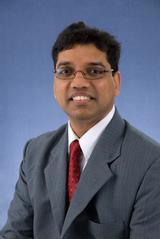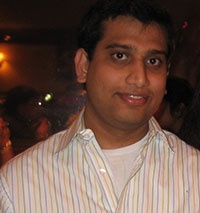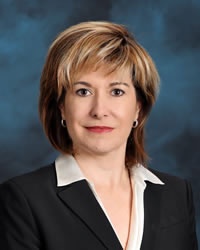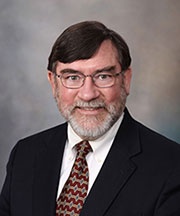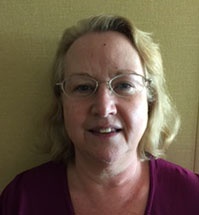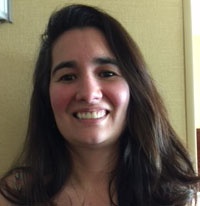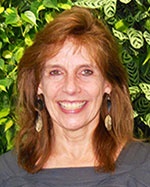 |
Blog
SYNOPSIS:
The Institute for Systems Biology (ISB) Cancer Genomics Cloud (ISB-CGC) is one of three pilot projects funded by the NCI with the goal of democratizing access to the TCGA data by substantially lowering the barriers to accessing and computing over this rich dataset. The ISB-CGC is a cloud-based platform that will serve as a large-scale data repository for TCGA data, while also providing the computational infrastructure and interactive exploratory tools necessary to carry out cancer genomics research at unprecedented scales. The ISB-CGC will provide interactive and programmatic access to the TCGA data, leveraging many aspects of Google Cloud Platform including BigQuery and Compute Engine. The ISB-CGC aims to serve the needs of a broad range of cancer researchers ranging from scientists or clinicians who prefer to use an interactive web-based application to access and explore the rich TCGA dataset, to computational scientists who want to write their own custom scripts using languages such as R or Python, accessing the data through APIs, to algorithm developers who want to spin up thousands of virtual machines to analyze hundreds of terabytes of sequence data. The ISB-CGC will allow scientists to interactively define and compare cohorts, examine the underlying molecular data for specific genes or pathways of interest, and share insights with collaborators around the globe.
BIO:
Ilya Shmulevich received his Ph.D. in Electrical and Computer Engineering from Purdue University, West Lafayette, Indiana, in 1997. From 1997-1998, Dr. Shmulevich was a postdoctoral researcher at the Nijmegen Institute for Cognition and Information at the University of Nijmegen and National Research Institute for Mathematics and Computer Science at the University of Amsterdam in The Netherlands, where he studied computational models of music perception and recognition. In 1998-2000, he worked as a senior researcher at the Tampere International Center for Signal Processing at the Signal Processing Laboratory in Tampere University of Technology, Tampere, Finland. From 2001-2005, he was an Assistant Professor at the Cancer Genomics Laboratory in the Department of Pathology at The University of Texas M. D. Anderson Cancer Center and an Adjunct Professor in the Department of Statistics in Rice University. Presently, he is a Professor at The Institute for Systems Biology, where he directs a Genome Data Analysis Center that is part of The Cancer Genome Atlas (TCGA) project. Dr. Shmulevich is an Affiliate Professor in the Departments of Bioengineering and Electrical Engineering at the University of Washington, Department of Signal Processing in Tampere University of Technology, Finland, and Department of Electronic and Electrical Engineering in Strathclyde University, Glasgow, UK. His research interests include systems biology, cancer genomics, multiscale modeling, complex dynamical systems, nonlinear signal and image processing, and computational learning theory.
SUMMARY:
Topic: The Institute for Systems Biology (ISB) Cancer Genomics Cloud
Speaker: Ilya Shmulevich, Ph.D.
Read a NCI Bioinformatics Blog Post by Dr. Shmulevich, Feb. 1, 2016
Date: Wednesday, December 9, 2015
Time: 11 AM – 12 PM ET
You are invited to listen to Dr. Shmulevich's presentation in Room 2W908 in the NCI Shady Grove Building on Medical Center Drive or via WebEx.
Presentation: A screen cast of the presentation will be available for viewing after the event on the NCI CBIIT Speaker Series YouTube Playlist
View Dr. Shmulevich's presentation slides.
About the NCI CBIIT Speaker Series:
The National Cancer Institute (NCI) Center for Biomedical Informatics and Information Technology (CBIIT) Speaker Series is a bi-weekly knowledge-sharing forum featuring both internal and external speakers on topics of interest to the biomedical informatics and research communities. For additional information, including past speaker series presentations, visit the CBIIT Speaker Series page.
Individuals with disabilities who need reasonable accommodation to participate in this program should contact the Office of Space and Facilities Management (OSFM) at 240-276-5900 or the Federal TTY Relay number 1-800-877-8339.
SYNOPSIS:
Open commons containing large amounts of public biomedical data from the research community have the potential to speed up the pace of medical research. We describe the development of a large-scale open source data commons for genomic and associated clinical data and some of our experiences with it. We also discuss some of the different public and private data partnerships that are emerging for sharing genomic data.
BIO:
Robert Grossman is the Director of the Center for Data Intensive Science (CDIS) and a Core Faculty and Senior Fellow at the Institute for Genomics and Systems Biology and the Computation Institute at the University of Chicago. He is the Founder and a Partner of Open Data Group, which has been building predictive models over big data and fast data since 2002. He is also the Director of the Open Science Data Cloud, a petabyte-scale science cloud for managing, integrating, analyzing, and sharing large datasets in science, engineering, medicine, health care, and the environment that is operated by the not-for-profit Open Commons Consortium. Dr. Grossman holds a Ph.D. in Mathematics from Princeton University. More information about him can be found at rgrossman.com .
SUMMARY:
Topic: Large Scale Data Commons for Genomic and Clinical Data and the Changing Landscape for Sharing Research Data
Speaker: Robert Grossman, Ph.D.
Date: Wednesday, November 4, 2015
Time: 11 AM – 12 PM ET
You are invited to listen to Dr. Grossman's presentation in Room 2W910-912 in the NCI Shady Grove Building on Medical Center Drive or via WebEx.
Presentation: A screen cast of the presentation will be available for viewing after the event on the NCI CBIIT Speaker Series YouTube Playlist
About the NCI CBIIT Speaker Series:
The National Cancer Institute (NCI) Center for Biomedical Informatics and Information Technology (CBIIT) Speaker Series is a bi-weekly knowledge-sharing forum featuring both internal and external speakers on topics of interest to the biomedical informatics and research communities. For additional information, including past speaker series presentations, visit the CBIIT Speaker Series page.
Individuals with disabilities who need reasonable accommodation to participate in this program should contact the Office of Space and Facilities Management (OSFM) at 240-276-5900 or the Federal TTY Relay number 1-800-877-8339.
SYNOPSIS:
The DataONE repository network, California Digital Library and Public Library of Science (PLOS) from October 2014–October 2015, works on a National Science Foundation-funded project to explore metrics — including citations, downloads and social media — for about 150,000 datasets. This presentation will summarize the major hurdles to make this work, the most important findings, and some ideas to go forward, including implementation as a production service.
BIO:
Martin Fenner has been the DataCite Technical Director since August 2015. From 2012 to 2105 he was technical lead for the PLOS Article-Level Metrics project. Dr. Fenner has a medical degree from the Free University of Berlin and is a Board-certified medical oncologist.
SUMMARY:
Topic: Data-Level Metrics
Speaker: Martin Fenner, M.D.
Date: Wednesday, October 28, 2015
Time: 11 AM – 12 PM ET
You are invited to listen to Dr. Fenner's presentation in Room 2W910-912 in the NCI Shady Grove Building on Medical Center Drive or via WebEx.
Presentation: View Dr. Fenner's presentation slides. A screen cast of the presentation will be available for viewing after the event on the NCI CBIIT Speaker Series YouTube Playlist
About the NCI CBIIT Speaker Series:
The National Cancer Institute (NCI) Center for Biomedical Informatics and Information Technology (CBIIT) Speaker Series is a bi-weekly knowledge-sharing forum featuring both internal and external speakers on topics of interest to the biomedical informatics and research communities. For additional information, including past speaker series presentations, visit the CBIIT Speaker Series page.
Individuals with disabilities who need reasonable accommodation to participate in this program should contact the Office of Space and Facilities Management (OSFM) at 240-276-5900 or the Federal TTY Relay number 1-800-877-8339.
SYNOPSIS: With each successive discovery in genetics, the true dynamic complexity of the genome has become increasingly apparent, requiring relatively consistent updates to the technical definition of the word "gene." It is now understood that the majority of human genes produce multiple functional products, or isoforms, primarily through alternative transcription and alternative splicing. Different isoforms within the same gene have been shown to participate in different functional pathways, and the altered expression of specific isoforms have been associated with numerous diseases. While the recent advances in NGS are facilitating the goal of studying gene regulation at isoform-level, there are a number of informatics challenges and difficulties that need to be addressed to improve the current state and fulfill the promise of studying gene regulation at gene isoform-level. Dr. Davuluri will present some of the recent approaches developed by our group, with an emphasis on how those methods have led to the development of a diagnostic assay for molecular sub-typing of cancer patients. In particular, he will challenge the use of basic gene-centric approaches in cancer genomics and argue that one should go beyond simple gene-based analyses but also consider isoform-level information that include gene expression/regulation of splice-variants. Looking forward, Dr. Davuluri will discuss the integrative application of different statistical and data-mining approaches to derive platform-independent classification models for identification of isoform-level gene signatures for cancer subtyping.
BIO:
Ramana V. Davuluri, Ph.D., is a Professor and Director of Cancer Informatics Core at the Robert H. Lurie Comprehensive Cancer Center, Department of Preventive Medicine, Division of Health and Biomedical Informatics at the Feinberg School of Medicine at Northwestern University in Chicago. Dr. Davuluri earned a Ph.D. in Statistics from the Indian Agricultural Statistics Research Institute in 1996.
SUMMARY:
Topic: Cancer Genomes Are Too Complex – It is Time to Move Away from Simple Gene-centric Approaches
Speaker: Ramana V. Davuluri, Ph.D.
Date: Wednesday, October 14, 2015
Time: 11 AM – 12 PM ET
You are invited to listen to Dr. Davuluri's presentation in Room 2E908 in the NCI Shady Grove Building on Medical Center Drive or via WebEx.
Presentation: View the presentation slides.
About the NCI CBIIT Speaker Series:
The National Cancer Institute (NCI) Center for Biomedical Informatics and Information Technology (CBIIT) Speaker Series is a bi-weekly knowledge-sharing forum featuring both internal and external speakers on topics of interest to the biomedical informatics and research communities. For additional information, including past speaker series presentations, visit the CBIIT Speaker Series page.
Individuals with disabilities who need reasonable accommodation to participate in this program should contact the Office of Space and Facilities Management (OSFM) at 240-276-5900 or the Federal TTY Relay number 1-800-877-8339.
SYNOPSIS:
Semantic MEDLINE integrates information retrieval, advanced natural language processing, automatic summarization, and visualization into a single Web portal. The application is intended to help manage the results of PubMed searches by condensing core semantic content in the citations retrieved. Output is presented as a connected interactive graph of semantic relations, with links to the original MEDLINE citations.
The ability to manipulate salient information across documents helps users keep up with the research literature and discover connections which might otherwise go unnoticed. Such an ability can have an impact on biomedicine by supporting scientific research. Researchers can use Semantic MEDLINE to implement the literature-based discovery methodology for hypothesis generation; in addition, they can use the discovery browsing paradigm to elucidate poorly understood biomedical topics.
BIO:
Thomas Rindflesch has a Ph.D. in linguistics from the University of Minnesota and conducts research in natural language processing at the National Library of Medicine. He is developing Semantic MEDLINE, a biomedical information management application that combines document retrieval, semantic processing, and knowledge visualization to facilitate scientific discovery.
SUMMARY:
Topic: Semantic Processing for Biomedical Research
Speaker: Thomas Rindflesch, Ph.D.
Date: Wednesday, September 16, 2015
Time: 11 AM – 12 PM ET
You are invited to listen to Dr. Rindflesch's presentation in Room 2W910-912 in the NCI Shady Grove Building on Medical Center Drive or via WebEx.
Presentation: A screen cast of the presentation will be available for viewing after the event on the NCI CBIIT Speaker Series YouTube Playlist
About the NCI CBIIT Speaker Series:
The National Cancer Institute (NCI) Center for Biomedical Informatics and Information Technology (CBIIT) Speaker Series is a bi-weekly knowledge-sharing forum featuring both internal and external speakers on topics of interest to the biomedical informatics and research communities. For additional information, including past speaker series presentations, visit the CBIIT Speaker Series page.
Individuals with disabilities who need reasonable accommodation to participate in this program should contact the Office of Space and Facilities Management (OSFM) at 240-276-5900 or the Federal TTY Relay number 1-800-877-8339.
SYNOPSIS:
In this talk, Mr. Madduri will describe Globus Genomics, a system that was developed for rapid analysis of large quantities of next-generation sequencing (NGS) genomic data. This system is notable for its high degree of end-to-end automation, which encompasses every stage of the data analysis pipeline from initial data access (from remote sequencing center or database, by the Globus file transfer system) to on-demand resource acquisition by a specialized elastic provisioner (on Amazon EC2); specification, configuration, and reuse of multi-step processing pipelines (via the Galaxy workflow system); creation of custom Amazon Machine Images; and efficient scheduling of these pipelines over many processors (via the HTCondor scheduler). The system allows biomedical researchers to perform rapid analysis of large NGS datasets using just a web browser in a fully automated manner, without software installation or a need for any local computing infrastructure.
BIO:
Ravi Madduri is a senior researcher at the Computation Institute and project manager in the Mathematics and Computer Science Division at Argonne National Laboratory. Mr. Madduri is also an innovation fellow at the Polsky Center for Entrepreneurship and Innovation at the University of Chicago. He led several successful large projects in NSF, NIH and DoE. His research interests are in building sustainable, scalable services for science, reproducible research, large scale data management and analysis. He is one of three key contributors to the National Institutes of Health $100M Cancer Biomedical Informatics Grid (caBIG), which links 60 NIH-funded cancer centers and clinical sites engaged in cancer research. For his efforts in project management, tool development, and collaboration, Mr. Madduri received several Outstanding Achievement Awards from NIH in recognition of his work on caBIG project management, tool development, and collaboration. Mr. Madduri is a lead architect on the scientific workflow design and implementation project under the caGrid toolkit. Mr. Madduri leads the Globus Genomics project (www.globus.org/genomics), which is widely used for genomics, proteomics, and other biomedical computations on Amazon cloud and other platforms. He also architected the Globus Galaxies platform that underpins Globus Genomics and several other cloud-based gateways realizing the vision of Science as a Service for creating, maintaining sustainable services for science. Mr. Madduri is co-PI on NHLBI-funded CardioVascular Grid project, big data analysis working group chair for the NIH BD2K BDDS center, co-PI for DoE funded Portal for Data and Analysis for Cosmological Simulation (PDACS) project and a senior member of NSF-funded Framework to Advance Climate, Economic, and Impact Investigations with Information Technology (FACE-IT).
SUMMARY:
Topic: Large-scale Research Data Management and Analysis Using Globus Services
Speaker: Ravi Madduri, Senior Researcher, Computation Institute, and Project Manager, Mathematics and Computer Science Division, Argonne National Laboratory, and Innovation Fellow, Polsky Center for Entrepreneurship and Innovation, University of Chicago
Date: Wednesday, July 22, 2015
Time: 11 AM – 12 PM ET
You are invited to listen to Mr. Madduri's presentation in Room 2W908 in the NCI Shady Grove Building on Medical Center Drive or via WebEx.
Presentation: Download the presentation slides.
About the NCI CBIIT Speaker Series:
The National Cancer Institute (NCI) Center for Biomedical Informatics and Information Technology (CBIIT) Speaker Series is a bi-weekly knowledge-sharing forum featuring both internal and external speakers on topics of interest to the biomedical informatics and research communities. For additional information, including past speaker series presentations, visit the CBIIT Speaker Series page.
Individuals with disabilities who need reasonable accommodation to participate in this program should contact the Office of Space and Facilities Management (OSFM) at 240-276-5900 or the Federal TTY Relay number 1-800-877-8339.
SYNOPSIS:
In the era of big data, effective use of increasingly larger, complex, and diverse datasets has become a critical challenge for healthcare transformation. To meet the challenge, the scientific community must deliver innovative and scalable frameworks for interpreting the influx of information to keep pace with rapid scientific developments. The mission of a national lab is to enable scientific innovations and transformative technical breakthroughs for grand challenges by leveraging unique resources. ORNL is taking on this "Big Data to Knowledge" challenge for health innovations via its Health Data Sciences Institute (HDSI). In this presentation Dr. Tourassi will discuss informatics innovations coordinated by the institute to expand and accelerate biomedical knowledge discovery. Dr. Tourassi will illustrate the value of these innovations with two cancer-related examples from precision medicine and population health. The first example will demonstrate how linking of heterogeneous information across The Cancer Genome Atlas (TCGA) can provide novel insights into cancer-specific mutations at the individual level that can then directly inform molecular epidemiology of specific tumor states. The second example will demonstrate the use of cyber-informatics to accelerate discoveries in environmental cancer epidemiology. Underlying the two applications is a powerful semantic reasoning framework built at ORNL that enables seamless hypotheses generation for exploratory research.
BIO:
Dr. Georgia Tourassi is the Director of the Biomedical Science and Engineering Center and the Health Data Sciences Institute at ORNL. She holds a Ph.D. in Biomedical Engineering from Duke University. She received the Young Investigator’s Award from the National Institute of Health and the Whitaker Foundation. Before joining ORNL in 2011, Dr. Tourassi was Associate Professor of Radiology and the Medical Physics Graduate Program at Duke University Medical Center, where she currently holds an Adjunct Professor position. She is also Adjunct Professor of Radiology at the University of Tennessee at Knoxville. Her research interests include biomedical informatics, medical imaging, and computer-aided decision support and her research has been featured in publications such as the Economist, Physics Today, and others. She has authored over 200 peer-reviewed journal, conference proceedings papers, and book chapters. She serves regularly on NIH grant review study sections. Dr. Tourassi has also served on the FDA advisory committee on computer-aided diagnosis devices. In 2014 she won an R&D 100 Award and in 2015 she was elected Fellow of the American Institute of Medical and Biological Engineering (AIMBE) and the American Association of Physicists in Medicine (AAPM).
SUMMARY:
Topic: Scalable Knowledge Discovery Platform for Health Informatics: From Precision Medicine to Population Health
Speaker: Dr. Georgia Tourassi, Director, Biomedical Science and Engineering Center, Oak Ridge National Laboratory (ORNL)
Date: Wednesday, July 8, 2015
Time: 11 AM – 12 PM ET
You are invited to listen to Dr. Tourassi's presentation in Room 2W908 in the NCI Shady Grove Building on Medical Center Drive or via WebEx.
Presentation: A screen cast of the presentation will be available for viewing after the event on the NCI CBIIT Speaker Series YouTube Playlist
About the NCI CBIIT Speaker Series:
The National Cancer Institute (NCI) Center for Biomedical Informatics and Information Technology (CBIIT) Speaker Series is a bi-weekly knowledge-sharing forum featuring both internal and external speakers on topics of interest to the biomedical informatics and research communities. For additional information, including past speaker series presentations, visit the CBIIT Speaker Series page.
Individuals with disabilities who need reasonable accommodation to participate in this program should contact the Office of Space and Facilities Management (OSFM) at 240-276-5900 or the Federal TTY Relay number 1-800-877-8339.
SYNOPSIS:
Dr. Javed Khan, Deputy Chief of NCI's Genetics Branch and Senior Investigator and Head of the Oncogenomics Section, will discuss the following:
1. Success and Challenges of Treating Pediatric Cancers.
2. Biomarkers, Drivers, and Therapeutic Targets
3. Using first Generation Genomics to identify biologically relevant therapeutic targets
4. Next generation genomics of pediatric cancers
5. Tumor heterogeneity
6. Next Generation Therapeutics: Personalized Therapies and Immunogenomics
7. Enabling Precision Therapy Trials in CCR
BIO:
Dr. Javed Khan obtained his bachelor's degree in 1984 and his master's degrees in 1989 in immunology and parasitology at England's University of Cambridge. He subsequently obtained his M.D. there and the postgraduate degree of MRCP (Membership of the Royal College of Physicians), equivalent to board certification in the United States. After clinical training in internal medicine and pediatrics as well as other specialties, he received a Leukemia Research Fellowship. In May 2001, Dr. Khan joined the Pediatric Branch, NCI, as a tenure track investigator. Dr. Khan and colleagues have published a new model for diagnosis of cancer using artificial neural networks (ANN), a form of artificial intelligence, and microarray technology. In April 2001, Dr. Khan was recognized by the American Association for Cancer Research for his work in tumor profiling by receiving a Scholar in Training Award. Recently Dr. Khan has led an international collaboration to perform comprehensive analysis of pediatric cancer genomes using next generation sequencing strategies.
SUMMARY:
Topic: Cancer Genomics to Identify Novel Biomarkers and Drivers and to Enable Precision Therapeutics
Speaker: Javed Khan, M.D.
Date: Wednesday, June 24, 2015
Time: 11 AM – 12 PM ET
You are invited to listen to Dr. Khan's presentation in Room 2W908 in the NCI Shady Grove Building on Medical Center Drive or via WebEx.
Presentation: A screen cast of the presentation will be available for viewing after the event on the NCI CBIIT Speaker Series YouTube Playlist
About the NCI CBIIT Speaker Series:
The National Cancer Institute (NCI) Center for Biomedical Informatics and Information Technology (CBIIT) Speaker Series is a bi-weekly knowledge-sharing forum featuring both internal and external speakers on topics of interest to the biomedical informatics and research communities. For additional information, including past speaker series presentations, visit the CBIIT Speaker Series page.
Individuals with disabilities who need reasonable accommodation to participate in this program should contact the Office of Space and Facilities Management (OSFM) at 240-276-5900 or the Federal TTY Relay number 1-800-877-8339.
SYNOPSIS:
The well-known phenomenon of "information explosion" has impacted virtually all areas of human enterprise, and healthcare has become no exception. While one might quibble whether more information is actually being created, there is no disagreement that vastly more information is being electronically captured and stored. Latent within the proliferation of such machine readable archives of information lays previously impractical metrics, capabilities for linkages and association, and ultimately new knowledge. The over-used moniker of "big data" is applied to the rise of vast, potentially-federated data sources, analytic methods for their interpretation, and emergent findings. Despite this non-precision, most observers agree that there is something new and different emergent in the opportunistic mining of disparate data on an unprecedented scale.
Examples of impressive inferences from big data abound in finance, marketing, education, social sciences, and economics. More focused, "big science" opportunities are self-evident in astronomy, physics, and arguably the discovery of the Higgs Boson (which really was inferred from perturbations observed across Exabytes of experimental particle-accelerator data). In biology and medicine the sweet spot has historically been in the human genome, where genotype-phenotype associations emerge from "genome-wide association studies" done at massive scale — more so in the present era of whole-genome sequencing.
The promise of best-evidence discovery, comparative effectiveness research, new outcomes analyses, adverse event discovery, and improved clinical care in general that might emerge from big-data methods applied to large, federated, clinical data repositories is intriguing. There is "gold in them hills," and the potential benefits of well-conducted data mining must not be lightly dismissed.
However, caution must dominate an otherwise unfettered analyses of clinical information, as the consequences of skewed, biased, spurious, or otherwise "wrong" answers can have serious adverse impact. While most of us are quite content to have a target answer appear "on the page" of a Google search result, somehow having the right answer "on the list" but not chosen for healthcare interventions may be interpreted as malpractice in some litigious countries — not to mention likely sub-optimal outcomes for a patient. Clinical decision support resources may recommend a spectrum of options to a clinician — who presumably has the responsibility of synthesizing such advice and selecting the optimal path, though few would argue that the amount of information and the complexity of their interactions have long ago exceeded the unaided human capacity for cognition, reliable processing, or well-balanced interpretation.
The importance of comparable and consistently represented clinical information, either at entry or through normalization to a canonical form, must remain as a necessary step before big-data methods can be meaningfully or safely applied to clinical data repositories.
BIO:
Christopher Chute, M.D. received his undergraduate and medical training at Brown University, internal medicine residency at Dartmouth College, and doctoral training in Epidemiology at Harvard University. He is Board Certified in Internal Medicine and Clinical Informatics, and is a Fellow of the American College of Physicians, the American College of Epidemiology, and the American College of Medical Informatics. He is presently the Bloomberg Distinguished Professor of Health Informatics at Johns Hopkins University, as well as professor of Medicine, Public Health, and Nursing. Additionally, he is Chief Health Research Information Officer for Johns Hopkins Medicine. He also chairs the World Health Organization (WHO) ICD-11 Revision.
Dr. Chute became founding Chair of Biomedical Informatics at Mayo in 1988, and retired as Professor of Biomedical Informatics and Section Head in 2014. He was PI on Mayo’s CTSA Informatics core, the eMERGE cooperative agreement on genotype to phenotype association, the Pharmacogenomics Research Network Ontology Resource, the LexGrid projects, and co-PI on the National Center for Biomedical Ontology. Recent grants as PI include the HHS/Office of the National Coordinator (ONC) SHARP (Strategic Health IT Advanced Research Projects) on Secondary EHR Data Use and the ONC Beacon Community (Co-PI). Dr. Chute chaired Mayo’s Data Governance Committee and served on Mayo’s enterprise IT Oversight Committee, and CTSA Executive Committee. Recently held external positions include Chair, ISO Health Informatics Technical Committee (ISO TC215), service as an index member on the Health Information Technology Standards Committee for the Office of the National Coordinator in the US DHHS, a member of the HL7 Advisory Council, and the initial Chair of the Biomedical Computing and Health Informatics study section at NIH.
SUMMARY:
Topic: Big Data Meets Healthcare: The Case for Comparability and Consistency
Speaker: Christopher Chute, M.D.
Date: Wednesday, May 27, 2015
Time: 11 AM – 12 PM ET
You are invited to listen to Dr. Chute's presentation in Room 2W910-912 in the NCI Shady Grove Building on Medical Center Drive or via WebEx.
Presentation: A screen cast of the presentation will be available for viewing after the event on the NCI CBIIT Speaker Series YouTube Playlist
About the NCI CBIIT Speaker Series:
The National Cancer Institute (NCI) Center for Biomedical Informatics and Information Technology (CBIIT) Speaker Series is a bi-weekly knowledge-sharing forum featuring both internal and external speakers on topics of interest to the biomedical informatics and research communities. For additional information, including past speaker series presentations, visit the CBIIT Speaker Series page.
Individuals with disabilities who need reasonable accommodation to participate in this program should contact the Office of Space and Facilities Management (OSFM) at 240-276-5900 or the Federal TTY Relay number 1-800-877-8339.
SYNOPSIS:
The need for decision support systems in radiology is growing given the dramatic increase in imaging utilization, intensity and workload. Dr. Summers' laboratory at NIH focuses on the application of advanced image processing and machine learning techniques to provide decision support for radiology image interpretation. As a body radiologist and CT subspecialist, Dr. Summers has chosen to focus his research on the development of decision support for thoracoabdominal CT image interpretation.
In this talk, Dr. Summers will discuss his laboratory's approach to full automation of body CT interpretation. In the last three years, his laboratory has made substantial progress towards this goal. Topics will include fully-automated detection and segmentation of major body organs and their lesions, including spine and spine lesions and lymphadenopathy. Validation results will be presented. Dr. Summers will describe potential unrecognized benefits of fully-automated quantitation on routine body CT scans without the need for additional radiation exposure. He will also discuss the impact of advances in deep learning to radiology image analysis.
BIO:
Ronald M. Summers received a B.A. degree in Physics and M.D. and Ph.D. degrees in Medicine/Anatomy and Cell Biology from the University of Pennsylvania. Dr. Summers completed a medical internship at the Presbyterian-University of Pennsylvania Hospital in Philadelphia, Pennsylvania, a radiology residency at the University of Michigan in Ann Arbor, Michigan, and an MRI fellowship at Duke University in Durham, North Carolina. In 1994, he joined the Diagnostic Radiology Department at the NIH Clinical Center in Bethesda, Maryland, where he is now a tenured Senior Investigator and Staff Radiologist. Dr. Summers is currently Chief of the Clinical Image Processing Service and directs the Imaging Biomarkers and Computer-Aided Diagnosis (CAD) Laboratory. In 2000, he received the Presidential Early Career Award for Scientists and Engineers, presented by Dr. Neal Lane, President Bill Clinton’s science advisor. In 2012, he received the NIH Director’s Award, presented by NIH Director Dr. Francis Collins. His research interests include virtual colonoscopy, CAD, multi-organ multi-atlas registration and development of large radiologic image databases. Dr. Summers' clinical areas of specialty are thoracic and gastrointestinal radiology and body cross-sectional imaging.
SUMMARY:
Topic: Progress in Fully-Automated Body CT Image Interpretation — 2015 Update
Speaker: Ronald M. Summers, M.D., Ph.D., Senior Investigator, NIH Clinical Image Processing Service, Imaging Biomarkers and Computer-Aided Diagnosis Laboratory
Date: Wednesday, April 29, 2015
Time: 11 AM – 12 PM ET
You are invited to listen to Dr. Summers' presentation in Room 2W910-912 in the NCI Shady Grove Building on Medical Center Drive or via WebEx.
Presentation: A screen cast of the presentation will be available for viewing after the event on the NCI CBIIT Speaker Series YouTube Playlist
About the NCI CBIIT Speaker Series:
The National Cancer Institute (NCI) Center for Biomedical Informatics and Information Technology (CBIIT) Speaker Series is a bi-weekly knowledge-sharing forum featuring both internal and external speakers on topics of interest to the biomedical informatics and research communities. For additional information, including past speaker series presentations, visit the CBIIT Speaker Series page.
Individuals with disabilities who need reasonable accommodation to participate in this program should contact the Office of Space and Facilities Management (OSFM) at 240-276-5900 or the Federal TTY Relay number 1-800-877-8339.
SYNOPSIS:
PhenoDB is a web-based tool developed for the collection, storage and analysis of phenotype data, as well as interpretation of exome and genome data in the context of phenotype data. It has it own taxonomy and links to OMIM for disease terms. There is a single center version that allow identifiers and includes only the phenotype and analysis module (http://phenodb.org) and a tool for larger studies that also includes a sample module and an ELSI module for storage and review of consents (http://researchphenodb.net). Both are freely available for download; http://phenodb.org can be used by individual users to try it out (it is toggled to have only deidentified data). PhenoDB has been in use for the Baylor-Hopkins Center for Mendelian Genomics since March 2012 and holds information on over 5000 individuals from ~3000 families. It has proved efficient and effective in novel disease gene discovery. It can also be used for a laboratory or clinic.
BIOs:
Dr. Ada Hamosh, Dr. Frank V. Sutland Professor of Pediatric Genetics, is the Clinical Director of the McKusick-Nathans Institute of Genetic Medicine at the Johns Hopkins University School of Medicine, the Scientific Director of Online Mendelian Genetics in Man (OMIM®), and the Co-Chair of the Phenotype Review Committee of the combined Baylor-Hopkins Centers for Mendelian Genomics (CMG), a National Human Genome Research Institute-funded project to identify the genes responsible for known and novel Mendelian disorders. Over the past year, Dr. Hamosh and colleagues have developed PhenoDB, a Web-based tool for the collection, storage, and analysis of standardized phenotype and genotype data for use in the CMG project that is freely available to all for clinical and research use.
Dr. Hamosh has authored over 70 papers and serves on several international committees representing genome-phenome relationships, as well as phenotype ontologies, including the International Rare Disease Research Consortium, the Human Variome Project, the ClinGen Project, Global Alliance for Genomic Health, and the Human Genome Organization.
Dr. Nara Sobreira is an M.D. clinical geneticist, board certified in Brazil and board eligible in the U.S. She completed her Ph.D. in Human Genetics at Johns Hopkins in the laboratory of Dr. David Valle. While working on her Ph.D. and completing a medical genetics residency at Johns Hopkins, she has worked a science writer with OMIM since 2009 and will become the Deputy Scientific Director for Phenotypes for OMIM in July 2015, when she joins the faculty of Johns Hopkins McKusick-Nathans School of Medicine. Since 2011, Dr. Sobreira has also been part of the Baylor-Hopkins Center for Mendelian Genomics (BHCMG) team as part of the Phenotype Review Committee and Analysis Committee with a key role in variant discovery/confirmation.
SUMMARY:
Topic: PhenoDB: A Tool for Collection and Analysis of Phenotypic and Genomic Data
Speakers: Dr. Ada Hamosh and Dr. Nara Sobreira
Date: Wednesday, April 1, 2015
Time: 11 AM – 12 PM ET
You are invited to listen to Dr. Hamosh and Dr. Sobreira's presentation in Room 2W910-912 in the NCI Shady Grove Building on Medical Center Drive or via WebEx.
Presentation: A screen cast of the presentation will be available for viewing after the event on the NCI CBIIT Speaker Series YouTube Playlist . View the presentation slides.
About the NCI CBIIT Speaker Series:
The National Cancer Institute (NCI) Center for Biomedical Informatics and Information Technology (CBIIT) Speaker Series is a bi-weekly knowledge-sharing forum featuring both internal and external speakers on topics of interest to the biomedical informatics and research communities. For additional information, including past speaker series presentations, visit the CBIIT Speaker Series page.
Individuals with disabilities who need reasonable accommodation to participate in this program should contact the Office of Space and Facilities Management (OSFM) at 240-276-5900 or the Federal TTY Relay number 1-800-877-8339.
SYNOPSIS:
This presentation will cover current status of the SEER program and review opportunities for use of the data in support of cancer research as it currently exists. It will identify and discuss challenges in more comprehensive data collection and how these are being addressed through new initiatives that will enhance the capacity of the registries to support research in a contemporary research setting.
BIO:
Dr. Lynne Penberthy is the Associate Director for the Surveillance Research Program within NCI’s Division of Cancer Control and Population Sciences. Dr. Penberthy obtained her M.D. from the University of Michigan and her M.P.H. in epidemiology at Johns Hopkins University. Dr. Penberthy’s career includes a surgical internship in Baltimore, Maryland, at the Sinai Hospital and a preventive medicine residency at Johns Hopkins. After her residency, she completed her post-doctoral training in epidemiology with the Centers for Disease Control (CDC) as an epidemic intelligence service (EIS) officer with the Commonwealth of Virginia. She is licensed to practice medicine in the state of Maryland.
Prior to her NCI appointment, Dr. Penberthy was the Director of Cancer Research Informatics and Services and Associate Professor of General Internal Medicine at the Virginia Commonwealth University Massey Cancer Center.
SUMMARY:
Topic: SEER Registries, Enhancing the Mission to Support Cancer Research
Speaker: Lynne Penberthy, M.D.
Date: Wednesday, March 18, 2015
Time: 11 AM – 12 PM ET
You are invited to listen to Dr. Penberthy's presentation in Room 2W910-912 in the NCI Shady Grove Building on Medical Center Drive or via WebEx.
Presentation: A screen cast of the presentation will be available for viewing after the event on the NCI CBIIT Speaker Series YouTube Playlist
About the NCI CBIIT Speaker Series:
The National Cancer Institute (NCI) Center for Biomedical Informatics and Information Technology (CBIIT) Speaker Series is a bi-weekly knowledge-sharing forum featuring both internal and external speakers on topics of interest to the biomedical informatics and research communities. For additional information, including past speaker series presentations, visit the CBIIT Speaker Series page.
Individuals with disabilities who need reasonable accommodation to participate in this program should contact the Office of Space and Facilities Management (OSFM) at 240-276-5900 or the Federal TTY Relay number 1-800-877-8339.
SYNOPSIS:
This talk will describe how science is changing as a result of the vast amounts of data we are collecting from gene sequencers to telescopes and supercomputers. This “Fourth Paradigm of Science,” predicted by Jim Gray, is moving at full speed, and is transforming one scientific area after another. The talk will present various examples on the similarities of the emerging new challenges and how Jim Gray’s vision is realized by the scientific community. Scientists are increasingly limited by their ability to analyze the large amounts of complex data available. These data sets are generated not only by instruments but also computational experiments; the sizes of the largest numerical simulations are on par with data collected by instruments, crossing the petabyte threshold this year. The importance of large synthetic data sets is increasingly important, as scientists compare their experiments to reference simulations. All disciplines need a new “instrument for data” that can deal not only with large data sets but the cross product of large and diverse data sets. There are several multi-faceted challenges related to this conversion, e.g., how to move, visualize, analyze, and in general interact with petabytes of data.
BIO:
Alexander Szalay is a Bloomberg Distinguished Professor of Astronomy and Computer Science at the Johns Hopkins University. Dr. Szalay is the Director of the Institute for Data Intensive Science. He is a cosmologist, working on the statistical measures of the spatial distribution of galaxies and galaxy formation. He is a Corresponding Member of the Hungarian Academy of Sciences, and a Fellow of the American Academy of Arts and Sciences. In 2004 Dr. Szalay received an Alexander Von Humboldt Award in Physical Sciences and, in 2007, the Microsoft Jim Gray Award. In 2008 he became Doctor Honoris Causa of the Eotvos University, Budapest. He enjoys playing with Big Data.
SUMMARY:
Topic: The Fourth Paradigm: How Big Data is Changing Science
Speaker: Dr. Alexander Szalay
Date: Wednesday, February 18, 2015
Time: 11 AM – 12 PM ET
You are invited to listen to Dr. Szalay's presentation in Room 2W910-912 in the NCI Shady Grove Building on Medical Center Drive or via WebEx.
Presentation: View the presentation slides. A screen cast of the presentation will be available for viewing after the event on the NCI CBIIT Speaker Series YouTube Playlist
About the NCI CBIIT Speaker Series:
The National Cancer Institute (NCI) Center for Biomedical Informatics and Information Technology (CBIIT) Speaker Series is a bi-weekly knowledge-sharing forum featuring both internal and external speakers on topics of interest to the biomedical informatics and research communities. For additional information, including past speaker series presentations, visit the CBIIT Speaker Series page.
Individuals with disabilities who need reasonable accommodation to participate in this program should contact the Office of Space and Facilities Management (OSFM) at 240-276-5900 or the Federal TTY Relay number 1-800-877-8339.
SYNOPSIS:
The HUBzero platform offers unique features to support collaboration among researchers, among them the deployment of computational tools and the dissemination of scientific resources. A fundamental need for collaborative research projects is the collection, sharing and exploration of data. This presentation describes the Hub-based "data technologies" which are designed to provide interactive, web-based data sharing and have been used to create more than 40 medical and scientific research databases across 10 Hubs. We will present examples that demonstrate how Hub databases connect and serve communities across the globe – with data contribution facilities to store and preserve valuable research data, and powerful feature-rich data exploration facilities to search, navigate, drill-down, link, filter, export and analyze data. Research communities are well served by HUBzero, which unites data, tools and collaborative technologies on a single web-based platform.
BIOs:
Ann Christine Catlin is a Senior Research Scientist with the Rosen Center for Advanced Computing at Purdue University. Ms. Catlin has an M.S. in Mathematics from Notre Dame University, and worked at several companies, both large (Bell Labs) and small (Applied Data Research) before coming to Purdue. She was in the Computer Science Department for 12 years, where she worked on problem-solving environments for partial differential equations-based applications. Ms. Catlin then moved to the Rosen Center, where she has worked for the past seven years to create and advance "data technologies" for the HUBzero© cyber-infrastructure.
Dr. Marietta L. Harrison was named Associate Vice President for Research in 2009 and Special Advisor, Strategic Initiatives Office of Research and Partnerships in 2014 at Purdue University. In this position she is charged with responsibility for various aspects of research administration, internal funding, internal research policies and aspects of research stewardship. Harrison is a professor in the Department of Medicinal Chemistry and Molecular Pharmacology and serves as the Director of the Oncological Sciences Center in Discovery Park and the Associate Director for the Purdue University Center for Cancer Research. Her research interests lay in the area of immune cell activation and the role of immunity in cancer surveillance. The Harrison laboratory studied the mechanisms underlying the function of the pivotal tyrosine kinase Lck and the group has published over 60 articles in peer-reviewed journals. Dr. Harrison received a doctoral degree in Biochemistry from the University of Wyoming in 1980 and holds a bachelor’s degree in Chemistry from the University of New Hampshire.
SUMMARY:
Topic: Collaborative Data Sharing at the Hub: Serving Communities of Research and Practice
Speaker: Ann Christine Catlin and Dr. Marietta Harrison, Purdue University
Date: Wednesday, February 4, 2015
Time: 11 AM – 12 PM ET
You are invited to listen to Ms. Catlin and Dr. Harrison's presentation in Room 2W908 in the NCI Shady Grove Building on Medical Center Drive or via WebEx.
Presentation: A screen cast of the presentation will be available for viewing after the event on the NCI CBIIT Speaker Series YouTube Playlist .
About the NCI CBIIT Speaker Series:
The National Cancer Institute (NCI) Center for Biomedical Informatics and Information Technology (CBIIT) Speaker Series is a bi-weekly knowledge-sharing forum featuring both internal and external speakers on topics of interest to the biomedical informatics and research communities. For additional information, including past speaker series presentations, visit the CBIIT Speaker Series page.
Individuals with disabilities who need reasonable accommodation to participate in this program should contact the Office of Space and Facilities Management (OSFM) at 240-276-5900 or the Federal TTY Relay number 1-800-877-8339.
SYNOPSIS:
Elucidating disease and dysfunction requires understanding how genotypic variation relates to phenotypic outcomes. However, data integration and retrieval are key challenges as phenotype data is largely unstructured and is encoded in a variety of formats. In addition, we only know the functional consequences of mutation for less than 40% of the human coding genome. Use of semantically structured phenotype data from model organisms so as to be comparable to human can supplement the human data to aid disease discovery. The ontologies act not only as data standards within and across species, but provide the connection of anatomical form to phenotypic outcomes — thereby enabling deep anatomical analysis to persevere, grow, and shed new light on how biological systems function across scale. The use of cross-species anatomy and phenotype ontologies can be combined with exome analysis to support disease diagnosis. The integrated data across models provisions for the development of methods to ensure quality structured phenotyping for maximal analytic utility, as well as garnering an understanding for how different organisms provide different phenotypic insights into gene function. Semantically capturing interactions with environmental perturbants (such as exposures or drug treatments) and the change in phenotypic outcomes over time is challenging, but is increasingly relevant for rare disease, cancer, and other more common disorders, as we seek to stratify patients and better support precision medicine.
BIO:
Dr. Melissa Haendel is the Director of the Ontology Development Group within the Oregon Health & Science University Library and the Department of Medical Informatics and Epidemiology and principal investigator of the Monarch Initiative. Dr. Haendel earned her Ph.D. in Neuroscience at the University of Wisconsin, Madison, and a B.A. in Chemistry from Reed College. She was a post-doctoral fellow at Oregon State University and the University of Oregon.
SUMMARY:
Topic: The Monarch Initiative: Semantic Phenotyping for Disease Diagnosis and Discovery
Speaker: Melissa Haendel, Ph.D.
Date: Wednesday, January 21, 2015
Time: 11 AM – 12 PM ET
You are invited to listen to Dr. Haendel's presentation in Room 2W908 in the NCI Shady Grove Building on Medical Center Drive or via WebEx.
Presentation: A screen cast of the presentation will be available for viewing after the event on the NCI CBIIT Speaker Series YouTube Playlist . Dr. Haendel's presentation slides are available at http://www.slideshare.net/mhaendel/nci-cbiit-haendel12115.
About the NCI CBIIT Speaker Series:
The National Cancer Institute (NCI) Center for Biomedical Informatics and Information Technology (CBIIT) Speaker Series is a bi-weekly knowledge-sharing forum featuring both internal and external speakers on topics of interest to the biomedical informatics and research communities. For additional information, including past speaker series presentations, visit the CBIIT Speaker Series page.
Individuals with disabilities who need reasonable accommodation to participate in this program should contact the Office of Space and Facilities Management (OSFM) at 240-276-5900 or the Federal TTY Relay number 1-800-877-8339.




